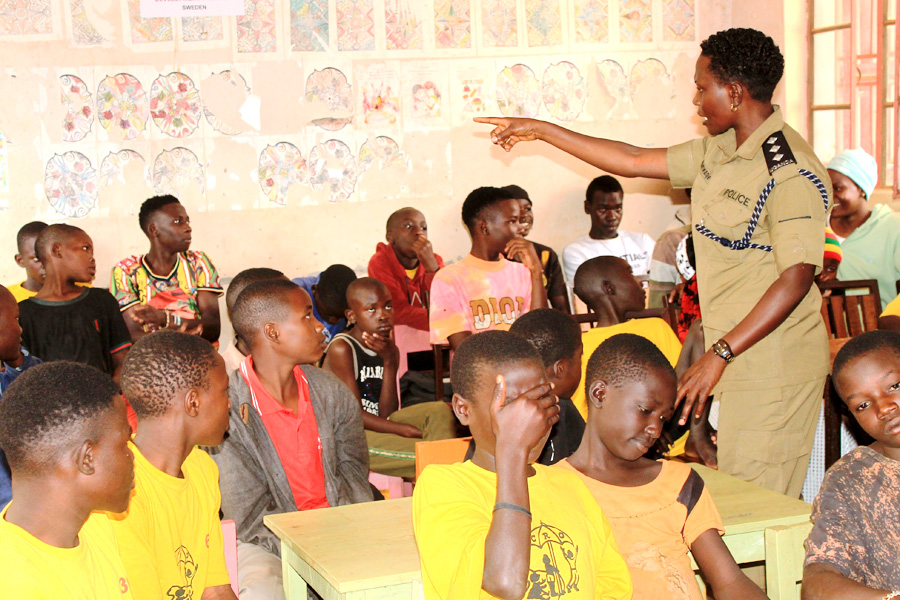Book Review: Meddy Progress: Bees and Their Flowers
Don’t you just love English that’s rich with poetry?
You hear a Winston Churchill or Barack Obama speech and you want to hear another.
And another.
Well, beyond such speechifiers, English has been around long enough to develop its appeal in and of itself.
It made its grand entrance in the eleventh century as a verbal transaction between the Norman-French conquerors and their Anglo-Saxon serfs.
So, as one might imagine, it was cluttered with the strange vernaculars which we usually associate with unsophistication.
As a result, English only became a literary language in the fourteenth century.
Since that time, you could say no writer of English has a perfect literary style. It all comes down to who or whom one’s style is modelled on.
Meddy Progress, a romantic poet, derives his style from English of the old school. His new anthology “BEES AND THEIR FLOWERS…A love story made in heaven” captures the essence of this style.
His poetry is not imitative despite being derivative of this style. It is peculiarly suited to his temperament, orientation and purposes.
As much as possible, his poetry avoids assimilating local dialects. Even though it is essentially Ugandan.
In the poem “Galactic Woman”, he writes: “She's like an ultra-universal galaxy packaged in a black-chocolate skin
Her eyes mimic the harmony of stars
Her lips can derive the formula of the sun from first principles
Her hair is like a stack of black afro-nappy baby bird feathers…”
By any standards of English, his poetry stands out as evocative and metaphorical. And so exposes his individualistic vocabulary as symptomatic of how English used to be written before the dawn of the new-fangled forms of expression related to spoken word poetry.
The language is lofty with only a dollop of conversational looseness to it.
“My woman will make you spill all the secrets your mama kept with you since childhood
She’s contagious and affecting
She’s lusciously traumatizing.
She’s all the strings of a violin…”
She’s innocent until she makes you bump into an electric pole while staring at her…” Meddie brags in his home homily to the “Irresistibly Beautiful” woman. The persona is presumably his lady.
To a large degree, there is an affected quaintness in his rhapsodizing of this lady.
In the last line of the excerpted above, the metaphorical language: strings of a violin—reveals his middle class roots. For no man from Kisekka Market would relate his lady to a violin.
This description calls into being the literary properties used by romance-poets of a more privileged class.
Nonetheless, these words suggest the remote and mystical relationship the poet has with the currents of his context.
A context in which drumsticks from KFC are the favored instrument in depicting a Romantic fantasy in even uptown Uganda.
We see that Meddie doesn’t belong to the upper, middle or lower classes. He belongs to the ages.
Namely, the nineteenth-century by way of Oscar Wilde.
In the poem “My Taste”, Meddie confirms this appraisal:
“A kind of female beings who apply make up to their faces and gloss to their lips; dress up immaculate, walk in the flamboyance of Victoria and in the royalty of Diana but never mind the posture of their knees nor the color of their dress once in the presence of their maker…”
The style has an elegant basis, surrendered to rhapsody and the underlying message: class is a state of mind.
Royalty, to Meddie, is gentility and grace under the surefire illiteracies of our times.
Not many poets are so removed from their milieu or preserved from the fractured English of today’s Uganda as Meddie is.
His eloquence is a grandiloquence that’s so elaborate and intricate as not to resemble ‘street’ English in the Pearl of Africa.
Still, he is ready to make concessions to our country’s nativity. In the poem “The Girl From Kabale”, he confesses:
“Her warmth and love are something to crave,
Her temper is something else altogether!
When you love her,
You must take the whole package or take nothing at all,
You don't mess with a MUKIGA Woman!”
Now, the words above are familiar to the everyday Ugandan. Meddie seems to be swapping Wilde for Kagayi with adjectives in the words “Don’t Mess with a Mukiga Woman”.
Which could also be written as “Don’t Mess with Anne Kansiime”.
Kansiime, a popular Ugandan comedienne, is the quintessential Mukiga woman. Her bare-knuckled disposition comes at you with multiple verbs. ‘
Meddy’s spirit is distinctively Ugandan, although characteristically foreign as he is clearly an anglophile.
Meddy progresses, if you will, to balance his phrases, repeat the idea of the “sacred feminine” in different forms with different literary devices. And with empathic wordplay of the “old school” that’s oddly and distinctly his own.
This anthology is a celebration of womanhood, without the patronizing undertones many male feminists infuse in the same.
Meddy is genuinely a lover of women.
Thankfully, his odes to the “second sex” are undiminished by his hammering insistence on how to treat a woman right.
That said, he does tend to overwrite.
Due to this, his biographical praise of womankind teeters on the brink of becoming hagiographic.
Nevertheless, Meddy is sincere.
His sincerity ensures each stanza has a steady rhythm.
To be sure, you can almost feel his passion dripping from every syllable.
The word “stanza” comes from the Italian word which denotes “a room”. Likewise, the more casual reader will end up imploring this poet to “get a room” with the women he patently deifies.
I admire how each stanza and each line are separate despite having no discernible change or movement in thought and feeling.
The elegant and somewhat bombastic style he employs to incarnate his message will hit you right between the eyes, before reeling you in to read some more.
“There’s an uncelebrated woman crying inside of my veins.
She mourns the atrocities committed to her by my father and other men;
But in a rather beautiful way.
Sometimes I feel like it's her spirit imploring me to write all this poetry about women (of course it’s deeper than that), trying to take me through and teach me the depths and richness in a woman that many men do not realize.
She’s trying to ask me to never allow any woman in my hands go through what she went through as a woman by showing me the beauty and richness that men never saw in her….” Meddy writes and thereby reveals his inspiration for loving women the way they should be loved.
This anthology will be available at bookstores near you very soon.













